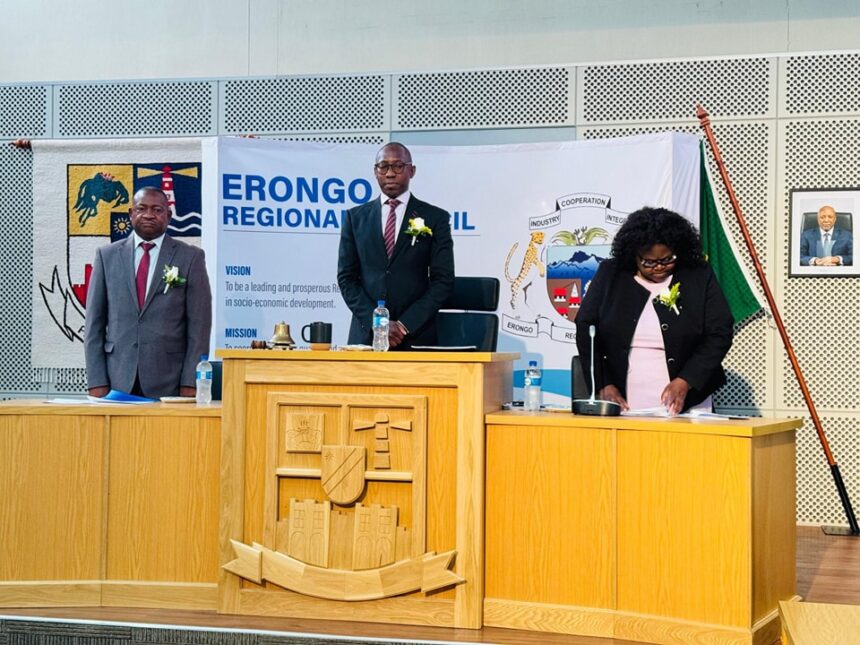SWAKOPMUND – Despite the government’s mitigating efforts, the Erongo region continues to face an urgent need for sustainable solutions to adapt and manage persistent droughts.
Erongo governor Neville Andre, while addressing residents, regional and local authority councillors during his annual State of the Region Address, said the region has been severely impacted by drought, with less than 100mm of rain received, leading to significant challenges for both communities and the environment.
“Water sources have diminished, placing immense strain on agriculture and livestock, which are vital for local livelihoods. The lack of rainfall has caused crop failures, reduced grazing lands, and threatened food security. Wildlife and natural ecosystems are also suffering, with many species struggling to survive in the harsh, arid conditions,” he said.
As a result, the government has undertaken to support small-scale farmers through various incentives, ensuring a more resilient agricultural sector while alleviating the impacts of the drought.
One of the initiatives that Erongo farmers are benefiting from, is the livestock marketing incentive, undertaken from April 2024 to date.
He said a total of 55 claims were received from farmers – 39 males and 16 females – representing an amount of N$387 150.
“A total of 37 claims amounting to N$52 200 were received for fodder and lick subsidy from April 2024. Only three claims were received for the lease of grazing,” Andre said.
The delivery of subsidised fodder at ADCs from July 2024 to date includes cowpeas, grass bales, and molasses, which will be delivered to the region in due course,” the governor said.
Other incentives, include small stock development and distribution in communal areas (SSDDCAs) through the ministry of agriculture.
The programme was implemented among the rural farmers of Daures, Karibib (Otjimbingwe area), and Walvis Bay Rural (Utuseb area) constituencies, where 20 vulnerable farmers (seven males and 13 females) received 20 goats and sheep ewes and a ram each during the current financial year as breeding stock under the revolving scheme, which started in April 2023, and runs over a three-year period.



